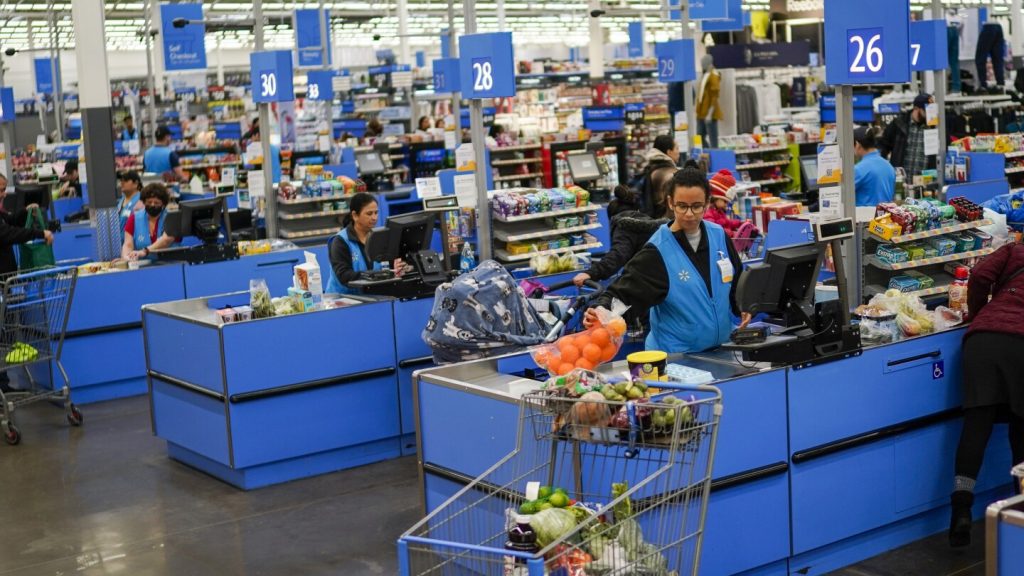Major retailers in the U.S. are implementing aggressive price cuts in an effort to entice consumers who are feeling the pinch of inflation to open their wallets. Companies such as Walmart, Target, and Aldi have rolled out discounts on groceries and essential household items, with Walmart expanding its temporary price rollbacks to nearly 7,000 grocery items and Target planning cuts on 1,500 products with more to come. These price reductions come as consumers are becoming more price-conscious and selective in their spending habits, opting for store brands over national brands and seeking out deals in response to rising costs for basic necessities like rent and car insurance.
The motivation behind these discounts is to provide relief for consumers who are feeling the impact of inflation on their budgets. Some companies, like Michaels, have said that the price reductions bring certain items back to pre-pandemic levels, aiming to deliver value to customers and build loyalty. With U.S. consumer confidence on the decline and shoppers increasingly focusing on finding bargains, retailers are trying to drive foot traffic back to their stores by offering attractive discounts on popular items. The share of online sales for cheaper items has been on the rise, indicating a shift in consumer behavior towards seeking out lower prices.
In response to changing consumer preferences and economic conditions, retailers are funding these price cuts through various methods, such as sacrificing profits, negotiating with suppliers, or cutting expenses. While some companies may be subsidizing discounts at the expense of profitability, others, like GPM Investments, LLC, a subsidiary of ARKO Corp, are having suppliers fund the cost of promotions. Despite concerns about the impact on profits, retailers are optimistic that these price cuts will help drive sales and retain customers, especially as shoppers continue to be price-sensitive and focused on finding deals.
The introduction of lower prices on everyday items reflects a major shift in retail strategy, with some experts noting that this marks the first significant “price war” in recent years. Retailers are emphasizing the importance of providing value to customers and offering relief in the face of rising costs and economic uncertainty. Through aggressive discounts on a wide range of products, retailers are aiming to appeal to price-conscious consumers and drive sales as the summer months approach.
As the economy continues to face challenges related to inflation and consumer confidence, retailers are doubling down on efforts to attract shoppers with competitive pricing and discounts. Companies like McDonald’s and Arko Corp are introducing promotions and deals to combat slowing sales and customer frustration with high prices. By focusing on essential items and popular products, retailers hope to drive traffic to their stores and encourage consumers to spend despite economic uncertainty.
Overall, the trend of price cuts and discounts across major retailers signals a shift in consumer behavior and purchasing habits as Americans navigate the impact of inflation on their budgets. Retailers are recognizing the need to adapt to changing economic conditions and consumer preferences by offering competitive pricing and promotions to attract customers. As the summer shopping season gets underway, consumers can expect to see more price reductions and deals as retailers vie for their business in an increasingly competitive market.


